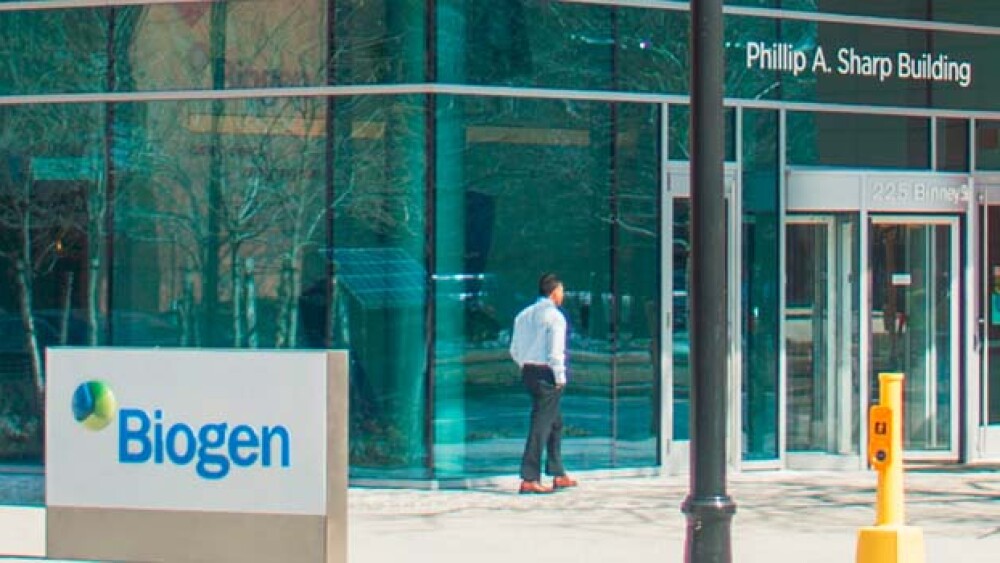Perhaps the last big hope for a successful Alzheimer’s drug just died. Biogen and its collaboration partner, Eisai, announced they were discontinuing the global Phase III clinical trials of aducanumab in patients with mild cognitive impairment from Alzheimer’s.
Perhaps the last big hope for a successful Alzheimer’s drug just died. Cambridge, Mass.-based Biogen and its collaboration partner, Tokyo-based Eisai, announced they were discontinuing the global Phase III clinical trials, ENGAGE and EMERGE, of aducanumab in patients with mild cognitive impairment from Alzheimer’s and mild Alzheimer’s dementia. In addition, Biogen is discontinuing the EVOLVE Phase II trial and the long-term extension PRIME Phase 1b trial of aducanumab.
The company had plans for another Phase III secondary prevention trial. Biogen is still deciding on whether it will continue while the data from ENGAGE and EMERGE are analyzed.
There have literally been dozens of failed clinical trials for Alzheimer’s drugs over the last few years, and overall the failed trials run greater than 145. Although there were plenty of skeptics, Biogen continued to claim aducanumab, an antibody targeted beta-amyloid, showed promise. Until today.
But the companies halted the trials after an independent data monitoring committee indicated they probably wouldn’t hit their primary endpoint.
“This disappointing news confirms the complexity of treating Alzheimer’s disease and the need to further advance knowledge in neuroscience,” stated Michel Vounatsos, Biogen’s chief executive officer. “Biogen’s history has been based on pioneering innovation, learning from successes and setbacks. Driven by our steadfast commitment to patients and our strong business foundation, we will continue advancing our pipeline of potential therapies in Alzheimer’s disease and innovative medicines for patients suffering from diseases of high unmet need.”
Biogen stock took a big hit at the news, dropping more than 25 percent, cutting its market cap by more than $15 billion.
Geoffrey Porges, an analyst with Leerink, wrote in a note to clients, “We cannot find any near-term catalysts that would help the stock recover back above $300. Our model is currently under review as we previously assigned a 35 percent probability of success for this program despite our many concerns regarding beta-amyloid as a target following the failures of multiple other antibodies in recent years.”
Earlier this year, Roche announced it was discontinuing two of its Alzheimer’s Phase III trials, CREAD 1 and 2, of crenezumab after a pre-planned interim analysis. From 1998 to 2017 there have been approximately 146 failed attempts at developing Alzheimer’s drugs, with 2018 marking another half-dozen or so. Those include trials by Axovant, Takeda Pharmaceutical and Zinfandel Pharmaceuticals, Boehringer Ingelheim, Merck & Co., vTv Therapeutics, Pfizer, AstraZeneca and many others.
The Biogen trial is another strike against the amyloid theory of Alzheimer’s. This theory is that the accumulation of a protein called amyloid-beta in the brain is the cause of the dementia and cognitive damage. However, the Biogen trial and many, many other drugs that prevent or clear amyloid have failed to improve cognition in even early Alzheimer’s patients.
Analysts, in particular, are criticizing approaches that focus on amyloid, although many in the field still believe amyloid is a significant factor. Rudy Tanzi, Chair of the Cure Alzheimer’s Fund Research Leadership Group and the Kennedy Professor of Neurology at Harvard University and at Massachusetts General Hospital, told BioSpace earlier this year, “I think amyloid and tangles trigger the disease, but they’re not sufficient to cause dementia. In a nutshell, what we’ve learned is that amyloid comes very early, 15 years before symptoms. And all the genetics tells us this disease begins with amyloid.”
He believes that when amyloid begins to form, the tangles themselves kill some neurons, but not enough to create dementia. But the amyloid and tangle-driven neuronal cell death eventually hit a point where the brain’s innate immune system reacts with significant levels of neuroinflammation, which is where the real cell death occurs, leading to dementia.
Tanzi compares the amyloid to a match and the tangles to a brush fire. “You can live with them,” he said, “but once the brain reacts to neuroinflammation, that’s like the forest fire. That’s when you really lose enough neurons to go downhill and become dementia. The failure of the amyloid-targeted AD trials is like trying to put out a raging forest fire by blowing out the match.”
Which isn’t of much use to Alzheimer’s patients and Biogen at the moment. Biogen has indicated it will release more extensive data in the future so other researchers and build on what they learned. Meanwhile, Biogen will undoubtedly be working to assure investors that they have a more diversified plan moving forward.





